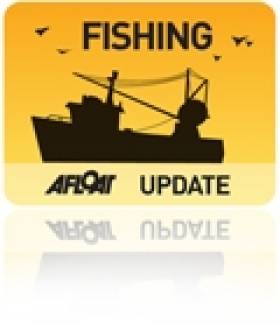Displaying items by tag: EU maritime affairs commissioner
Make or Break Time for Fish Discards Ban
#FISHING - The Guardian reports that an alliance of EU member states plans to "hijack" a council meeting of the union's fisheries ministers today to prevent a ban on fish discards.
EU maritime affairs commissioner Maria Damanaki has stated her commitment to ending the practice, describing it as “unethical, a waste of natural resources and a waste of fishermen’s effort.”
Half of all fish in the North Sea - and up to two-thirds in other areas - are thrown back under the quota system implemented under the EU's common fisheries policy. The practice was recently highlighted by TV chef Hugh Fearnley-Whittingstall's 'Fish Fight' campaign.
Minister for the Marine Simon Coveney has called on EU states to support Ireland's effort to deal with fish discards, as previously reported on Afloat.ie.
But some member states, led by France and Spain, have dismissed the proposed ban as "unrealistic" and "too prescriptive", and will attempt to pass a declaration to allow the practice to continue indefinitely.
According to the Guardian, the charge is being led by industrial-scale fishing enterprises who want to retain the permission to discard lower value fish in order to maximise profits.
Brussels insiders say that if the declaration were to pass it would "kill the reform".
Minister Shows Displeasure With Euro Fishery Plans
#FISHING - The Minister for the Marine has spoken out over plans by the European Commission to make cuts in certain fish stocks that could see €65 million in lost earnings for Ireland's fishing fleet.
According to The Irish Times, Minister Simon Coveney said there was "very credible data prepared by the Marine Institute to back up" the case against proposals by EU maritime affairs commissioner Maria Damanaki to cut certain stocks by as much as 25%.
He told the paper he would "challenge anyone to say we are not sticking with scientific advice", and also suggested that the fishing industry is being more responsible in its own proposals.
"The European Commission is recommending a 60 per cent increase in the total allowable catch for Celtic Sea herring, whereas the industry is seeking 30 per cent as a more responsible approach,” said Minister Coveney.
“So this shows it is not true to say that fishermen are irresponsible, as some would suggest."
EU fish talks continue today in Brussels. The Irish Times has more on the story HERE.

























































